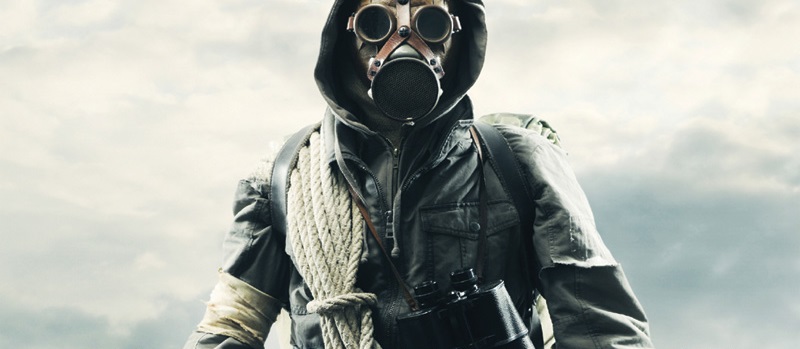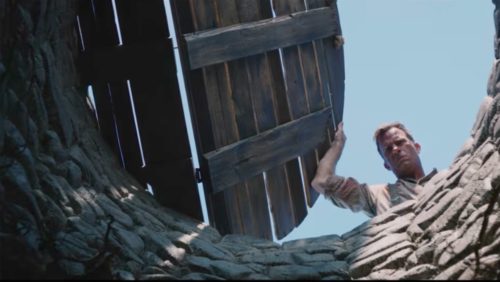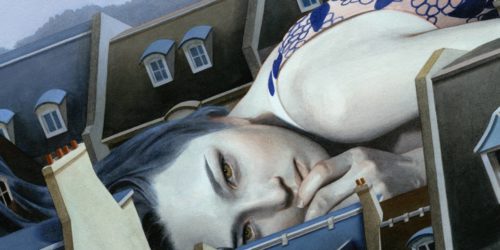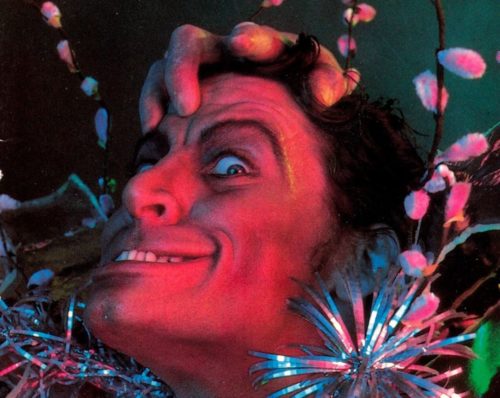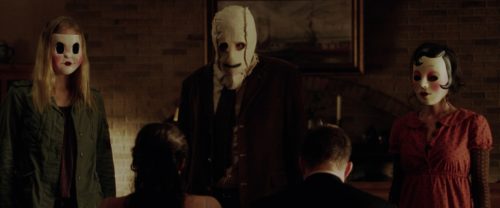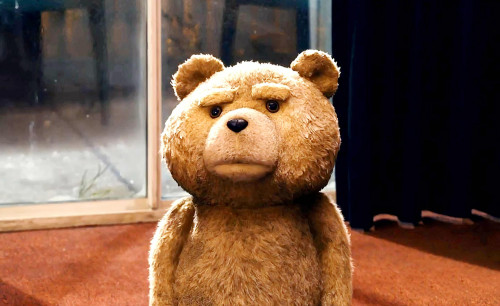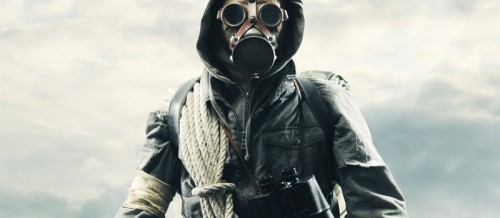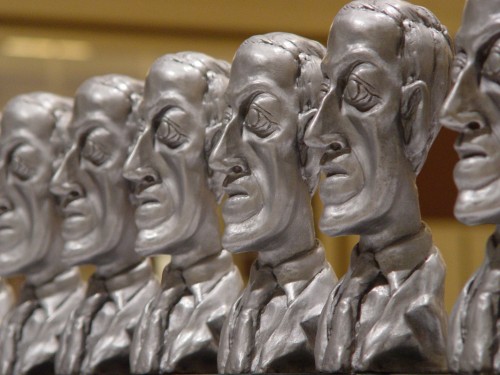Fractured: Tales of the Canadian Post-Apocalypse, edited by Silvia Moreno-Garcia starts off with a reference to the Millerites and The Great Disappointment, perhaps my favourite name for an historical occurrence. The Great Disappointment was the name given to a spiritual crisis that took place when the apocalypse failed to in 1844. It’s of vast importance to the understanding of 19th century American Christian spirituality but for me, it just sums up so much about that curious lust for a violent eschaton.
Maybe I’m still in shock from having read Left Behind for a podcast on bad books or maybe it’s my unhealthy delight in reading Chick Tracts, but there is something so strangely fascinating in how many of my co-believers approach the end of the world with excitement especially in comparison to how it tends to be such a source of angst and dread in the secular world if no less dwelt upon. I often mention how my generation feels like one of the first that didn’t live under the shadow of The Bomb™ and the threat of instant thermonuclear annihilation was never really a part of our existence (Although Dr. Putin is doing his best to change that.) We have fears of gradual worsening and decay such as corporate dystopia, never-ending wars against concepts, climate change, and so forth but nothing like the Boom-It’s-Over mentality of the 20th century.
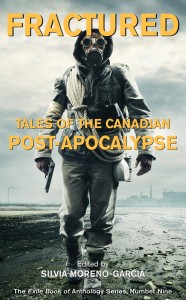 Nevertheless, apocalypses still capture our imagination. I don’t want to think about the number of hours I’ve poured into the Fallout series of games. Then we have the Walking Dead, Book of Joshua, Revolution, The Road, Mad Max, and so forth all painting these bleak, unforgiving, and primal pictures of life after it all goes away. For those of us sitting around comfortably in the richest countries, there must be something so delightfully exciting about slumming it up in a world with no laptops or ATMs or expectations to wear deodorant. One wonders if folks in the developing world who live without all the luxuries we take for granted tell similar stories. And then there’s Canada. Canada in its mythology combines something of the rugged frontier land with the polite, Nordic state. It’s a place of contradictions and disconcerting mental images. On one hand, you have socialized health care and on the other you have the Tar Sands. You have mounties and you have Residential Schools. Margaret Atwood and the Kids in the Hall. You’ve got Alanis Morissette, Louis Riel, Rob Ford, Laura Secord, General Wolfe, and Chris Hadfield all rubbing shoulders and fighting for their place in the national memory but most folks know Canada (when they remember to think of it) as that nice polite country that’s not nearly as awful as those Americans. The notion of the Apocalypse hitting Canada seem so jarring with what we think we know about this happy country and that’s probably a good thing. It pays to get jarred now and then.
Nevertheless, apocalypses still capture our imagination. I don’t want to think about the number of hours I’ve poured into the Fallout series of games. Then we have the Walking Dead, Book of Joshua, Revolution, The Road, Mad Max, and so forth all painting these bleak, unforgiving, and primal pictures of life after it all goes away. For those of us sitting around comfortably in the richest countries, there must be something so delightfully exciting about slumming it up in a world with no laptops or ATMs or expectations to wear deodorant. One wonders if folks in the developing world who live without all the luxuries we take for granted tell similar stories. And then there’s Canada. Canada in its mythology combines something of the rugged frontier land with the polite, Nordic state. It’s a place of contradictions and disconcerting mental images. On one hand, you have socialized health care and on the other you have the Tar Sands. You have mounties and you have Residential Schools. Margaret Atwood and the Kids in the Hall. You’ve got Alanis Morissette, Louis Riel, Rob Ford, Laura Secord, General Wolfe, and Chris Hadfield all rubbing shoulders and fighting for their place in the national memory but most folks know Canada (when they remember to think of it) as that nice polite country that’s not nearly as awful as those Americans. The notion of the Apocalypse hitting Canada seem so jarring with what we think we know about this happy country and that’s probably a good thing. It pays to get jarred now and then.
Sitting down to read these stories, I wondered just how Canadian would they be? Would they be indistinguishable from any other story set in a developed, English speaking country? Would there be ham-fisted Can-Con shoe-horned in? A scene set in a bombed out Swiss Chalet or a passing reference to how useless Toonies are now? Oh! Maybe the Littlest Hobo will make a cameo with a bloody hand in his mouth!
In truth, they were just as paradoxical as Canada herself. Like any anthology, quality and my taste for the stories varied but there was a sense of diversity, of trying to capture the scope and size of all of Canada. There were stories from Vancouver to Prince Edward Island and touching down on much in between. They ran the gamut from ecological disaster to war to alien invasion to g…g…g…ghosts and tried to include a whole variety of voices to tell these stories. Of all the voices, I noticed the strong presence of indigenous ones, maybe out of guilt or out of the notion that those who were first here will be the last to remain. Regardless, it was noticeable and I think commendable.
Many of my favourite stories had a touch of humour to them. “Kalopsia” was written in this poetic patois of broken if consistently broken English and brought a touch of the absurd to the bleakness. “Edited Hansard 116” managed to tell the story of Canada’s collapse through the minutes of a House of Commons sessions which seemed depressingly accurate. “Manitou-wapow” was a bizarre but charming mash-up of the Red River Rebellion and War of the Worlds. And then there was “River Road” which wasn’t funny or cute or gimmicky but managed to make the cold come alive in that truly Canadian way.
The prize for most Can-Con does have to go to “Matthew, Waiting” which was so steeped in a certain young lady of a certain Green Gable as to be almost parody but even it managed to pull up and have a kind of sad sweetness to it. I’m not sure what to think about “The Dome of Saint Macaire,” the swashbuckling Quebecois story with nuclear-powered, laser-mounted cathedrals but I’ve only been to Quebec a handful of times so who am I to say?
It’s a great collection with some truly remarkable writing and made me want to cuddle with my little daughter and keep her safe from roving cannibal gangs. Definitely worth a read.
Interested in picking up a copy of Fractured? Order it from Amazon.com, Chapters, or Book Depository.

